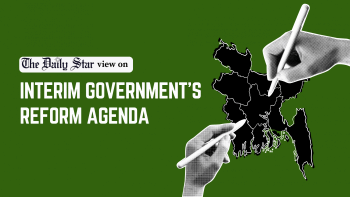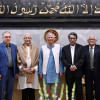Ensure diversity in the reform commissions

It is disconcerting that the reform commissions established by the interim government lack adequate representation of women and minority groups. Among the 10 commissions set up so far—concerning the judiciary, election system, civil administration, police, Anti-Corruption Commission, constitution, health affairs, mass media, labour rights, and women's affairs—only the one on women's affairs is headed by a woman.
So far, a total of 50 members have been selected to work for the six commissions constituted on October 3 (while the remaining four are yet to be fully staffed). Of them, only five members are female, according to a report by Prothom Alo. Moreover, there is no representation from religious and ethnic minority groups in the nine-member constitutional reform commission, despite one of the major criticisms of the 1972 constitution being its failure to recognise ethnic minorities. Similarly, the police and judiciary reform commissions have no members from religious and minority communities. Retired government officers make up the largest group—30 percent—among all commission members. In addition, the academics selected as members of various commissions are mostly from Dhaka University (particularly its law department), while other universities, especially those outside Dhaka, have been overlooked.
This underrepresentation of certain groups, and simultaneously overrepresentation of certain others, go against the spirit of the July-August uprising that called for an end to all forms of discrimination. However, diversity carries more than just symbolic value. For example, a recent opinion piece published in this daily highlighted the need for diversity in the health system reform committee. This committee mainly consists of clinicians and physicians, excluding professionals from essential fields such as pharmacology, which is a critical aspect of healthcare.
We still do not know the extent to which the reform commissions will influence the final reform framework, as their mandates or terms of reference have not been published yet. However, Chief Adviser Prof. Muhammad Yunus's September 11 speech indicated that changes proposed by the commissions will not be implemented without consultation with representatives from student bodies, civil society, and major political parties. This offers hope that the final reform framework will incorporate the voices of less-privileged and marginalised communities. Additionally, there is always room to improve the composition of the commissions as the head of each commission has the authority to select the number and qualifications of members.
Thus, we hope that all commissions will prioritise proper representation of diverse groups and perspectives while finalising their members. We also hope that the interim government's future actions will uphold the importance of representational value in all matters of state reform.

 For all latest news, follow The Daily Star's Google News channel.
For all latest news, follow The Daily Star's Google News channel. 










Comments